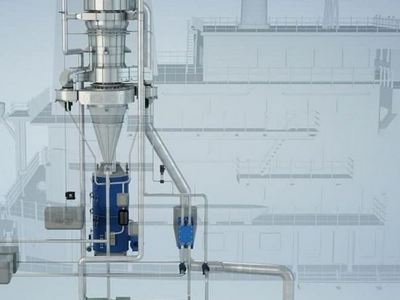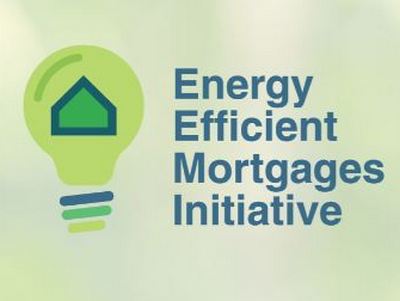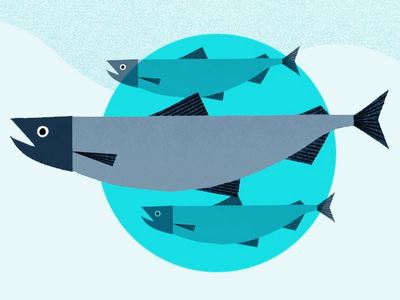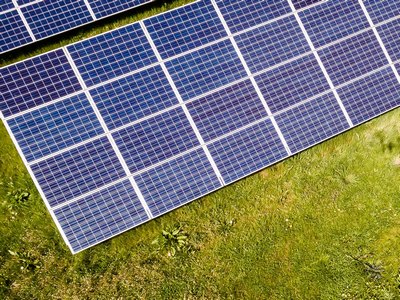Complexity

Research Institute for Complexity
Science of complex economic, human and natural systems
The transdisciplinary study of complex systems offers innovative solutions to outstanding scientific questions and global societal challenges. It requires the work and contributions of mathematicians, computer and data scientists, physicists, linguists, historians, social scientists and researchers in the fields of humanities, economy, ecology and climatology. In complex systems, growth patterns and final structures are not predictable: no design is possible from a priori knowledge but design possibilties are experimented: it requires evolutionary algorithms to optimize complex systems.
Pattern identification and the study of dynamic interactions in complex systems allow the development of models and simulation tools that fit stylized facts and can be applied in a variety of fields, ranging from climate projections to the implementation of risk management and mitigation strategies and the understanding of behaviours in socio-economic, and natural systems.
Keywords
Advanced and smart materials, Behavioural models, Big data, Climate science, Complex networks, Computational models, Computing, Data mining, Modelling, simulation and forecasting tools, Network modelling, Pattern identification and analysis, Risk assessment, Risk management, Smart cities and, communities, Systemic risk
Coordinator
Research facilitators
Members
High-impact and award-winning projects
EUMEPLAT - European media platforms
The project EUMEPLAT (European media platforms: assessing positive and negative externalities for European culture) aims at analyzing the role of media platforms in fostering or dismantling European identity. The assumption taken is that European dimension has rarely been dominant in media history. In most cases – i.e., movie – market shares are mainly divided among national productions and importations from the most influential country. In broadcasting both regional and national patterns emerge, with properly European exchanges being the exception more than the rule. Web platforms are usually owned by US companies, with a new threat appearing in our media landscape. The project focuses on the "platformization" process in three fields: news, video sharing, media representations, as the rise of new closed Web architectures, so as to inquire its positive and negative externalities, functional and dis-functional consequences. The research question is whether or not new platforms – YouTube, Netflix, NewsFeed - are making European culture more European, based on indicators related to production, consumption and representation. Patterns will be detected by comparing national, regional and European and level. Advanced methods will be applied for data analysis, so as to provide guidelines for decision-makers (i.e. fake news prevention; best practices in co-productions).
Project website / EU Cordis database
Researcher: Fabiana Zollo
Duration: 01/03/2021 - 29/02/2024
Funding: Horizon 2020 Societal Challenges: Europe In A Changing World
EMERGE - Environmental impacts of shipping emissions
The objectives of "EMERGE - Evaluation, control and Mitigation of the EnviRonmental impacts of shippinG Emissions" are to quantify and evaluate the effects of potential emission reduction solutions for shipping in Europe for several scenarios, and to develop effective strategies and measures to reduce the environmental impacts of shipping. EMERGE objectives are achieved through real-world test cases involving measurements and modelling on actual vessels, along main shipping routes and in sensitive European marine regions. EMERGE collects and synthesizes experimental evidence on waste streams to water and emissions to air originating from ships, for different emission control technologies. The measurements will focus on abatement techniques and will include emissions to, and concentrations in water, air and marine biota.
Project website / EU Cordis database
Researcher: Antonio Marcomini
Duration: 01/02/2020 - 31/12/2024
Funding: Horizon 2020 Excellent Science - Research Infrastructures
The Starch Food Niche: Human Adaptation, Genes, and Culture Ressources
The Starch4Sapiens project aims to analyze and compare the biological and behavioral changes that made possible efficient starchy food metabolization which occurred in Eurasia between the Upper Pleistocene and Neolithic (from ca 126 ka to 12 ka, 6). The hypothesis is that regular consumption of large amounts of dietary carbohydrates required molecular adaptations to permit positive selection under constraining environmental conditions and this favored Homo sapiens expansion. The project aims to read the history of genotypic changes from genomes, which are also noticeable in fossil remains and cultural behavior, in order to determine the extent to which they were introduced by regular starch-rich food consumption well before the Neolithic transition. Thus, the project risk-hypothesis is to show that continuous and massive dietary carbohydrate consumption was only possible due to co-evolution between genetic adaptation, which allowed the effective digestion of starch-rich foods contained in dietary carbohydrates, and lifestyle transformations, on the level of socially-learned culture and behavior patterns (mechanical processing of starchy plants into staple food by means of ground stones and probably associated to thermal treatment, namely wet-cooking). These modifications may have led to better health conditions (visible by change in bones, teeth and pathology from EAHS and HS) necessary and essential for a constant increase in the HS population and, consequently, to the disappearance of other humans (notably Neandertals and Denisovans).
Website
Researchers: Laura Longo, Elena Badetti
Duration: 01/12/2020 - 30/11/2023
ESG Factors and Climate Change for Credit Analysis and Rating
The aim of the ESG-Credit.eu project is to implement a methodology to include ESG (Environmental, social, and corporate governance) criteria and climate change factors into credit analysis and ratings. Given that ESG factors measure the firm’s sustainability and its ethical skills, the project investigates how those factors affect the creditworthiness of a firm measured by credit ratings over time. Moreover, we include in the analysis the impact that climate change could exert over a firm belonging to a certain industry. The expected result of the ESG-Credit.eu project is to introduce augmented credit ratings which include ESG factors and climate change scenarios.
Website
Researcher: Monica Billio
Duration: 01/12/2019 - 30/11/2022
Monitoring and preventing online hate speech
"IMSyPP – Innovative Monitoring Systems and Prevention Policies of Online Hate Speech" aims to automatically detect hate speech in several languages, to identify triggers, to recommend effective counter narratives, and to propose policies to the European communication regulators. The data will be manually annotated for types of hate speech, and quality carefully controlled. We will develop hate speech models by applying advanced machine learning methods. The models will be deployed in online settings and used to analyze the large amounts of data already collected. This will allow to analyze mechanisms and trends in hate speech, and identify different types of triggers. We will conduct a pilot study on possible counter narratives and develop recommendations.
Website
Researcher: Fabiana Zollo
Duration: 01/03/2020 - 28/02/2022
Optimised personalised drug therapies for renal pathologies in type II diabetes
Diseases, co-morbidities, and patients responses to certain therapies are the result of a complicated interplay of numerous factors. The relationships defining how this intricate network of inputs leads to various outputs is extremely difficult to derive using conventional means. Thanks to Big Data, high-level applied mathematics and computers, the EU-funded DC-Ren project (Drug combinations for rewriting trajectories of renal pathologies in type II diabetes) is developing a tool that will take all this and more into account, and enable optimised personalised drug therapies for significantly enhanced outcomes. The team is focusing on diabetic kidney disease, a common co-morbidity of type 2 diabetes often accompanied by cardiovascular disease. Currently, the drug cocktails targeting it produce highly varied responses. Thanks to its vast patient database, advanced experimental techniques and dynamical systems theory, DC-ren is developing a completely new and widely applicable computational framework for decision support.
Website
Researcher: Debora Slanzi
Duration: 01/01/2020 - 31/12/2024
EeMMiP - Energy efficient Mortgage Market Implementation Plan
EeMMIP responds to the objectives of the EU in the areas of sustainable finance and climate change and aims to influence the entire value chain, from consumer to bond investor, stimulating mentality change and securing energy efficiency in market attitudes and best practices both in Europe and globally. The Project conducts an analysis of the current market systems relevant to the development of an EEM market and establishes demonstrators to support the demonstration of the end-to-end customer journey and EEM life-cycle. It will establish market-based governance and an EEM Label to support recognition of and confidence in EEM and facilitate access to quality information for market participants.
Website
Researcher: Monica Billio
Duration: 01/09/2020 - 31/08/2022
NewTechAqua: A sustainable, resilient and innovative European aquaculture
"NewTechAqua - New Technologies, Tools and Strategies for a Sustainable, Resilient and Innovative European Aquaculture" intends to expand and diversify EU production of finfish, molluscs and microalgae by developing and validating technologically advanced, resilient and sustainable new solutions. The organizational approach of NewTechAqua is to group the solutions in 6 different categories: feed, Industry 4.0, sustainable farming, genetics, new species and new products. They are validated on conventional (Atlantic salmon, rainbow trout, seabass and seabream) and emerging (greater amberjack, meagre, Senegalese sole and grey mullet) finfish species, molluscs (Pacific oyster, mussel) and microalgae.
Project website / EU Cordis database
Researcher: Roberto Pastres
Duration: 01/01/2020 - 31/12/2023
Funding: Horizon 2020 Societal Challenges - Food security, sustainable agriculture and forestry, marine, maritime and inland water research, and the bioeconomy
Transparent assessment of energy efficiency in ESG ratings
TranspArEEnS (Mainstreaming transparent assessment of energy efficiency in environmental social governance ratings) objective is to enhance standardized disclosure of EE and ESG information at firm level, to foster access to long term financing (e.g. via securitization) and better risk assessment, while taming the risk of greenwashing. TranspArEEnS will achieve its goal by means of five measurable objectives that foresee the collaboration of project partners from academia, financial policy and industry: 1. develop a standardized large-scale EE-ESG database; 2. develop a standardized EE-ESG SMEs (Small and Medium Enterprises) survey; 3. develop standardized EE-ESG rating; 4. support long term EE-securitization; 5. dissemination and capacity building.
Project website / EU Cordis database
Researcher: Monica Billio
Duration: 01/06/2021 - 30/11/2023
Funding: Horizon 2020 Societal Challenges - Secure, clean and efficient energy









